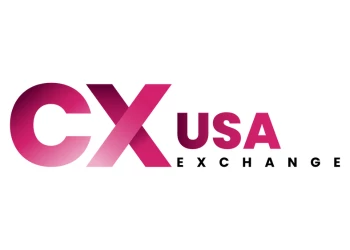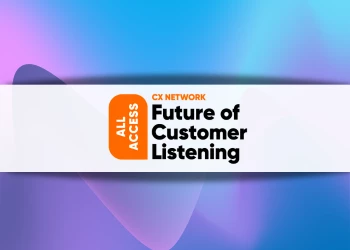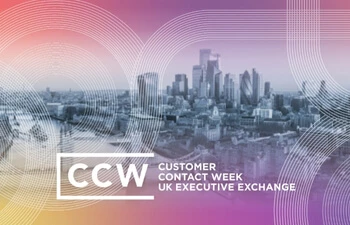Powering better CX and ROI through Voice of the Customer
Energy QLD’s Michael Dart explains the importance of net trust and how proactive VOC can enhance ROI
Add bookmark
Creating an effective Voice of the Customer (VoC) program comes with its challenges at the best of times. When executed correctly, however, VoC can help an organization truly understand how its brands, services and products resonate with its customers. But what if a proactive VoC program could also enhance ROI?
This is just one of the questions that will be addressed by Michael Dart, Executive Director, Customer for Australian electricity distribution group Energy Queensland, during CX Network’s online event All Access: Voice of the Customer APAC.
Dart has executive responsibility for the largest 24/7 network customer operations center in Australia and oversees Energy QLD’s market transaction and customer connection functions.
Ahead of the event, CX Network caught up with Dart to find out what customers want from their energy providers and how Energy QLD measures its CX achievements.
CX Network: Because energy is an essential service, rather than a consumer or luxury item, what do customers want from their energy providers and how is Energy QLD meeting these customer demands?
Michael Dart: Energy is such a critical enabler of the economy. This means there are increasing expectations on energy providers, particularly as we see climate change and ESG become such a feature around the world as it relates to the energy transition, delivering renewables and customers wanting to get the benefits out of renewables, which also impacts their prices.
Our strategy relates to all four of our customer-facing brands and it is very simple: know your customers, make it easy and deliver value. Everything we do across the business ties back to that strategy.
In the state of Queensland, due to the energy transition that is underway there is a significant program of work taking place to deliver those opportunities for energy and deliver cleaner, affordable and reliable solutions for everyone.
Time and again, through our research we have found that clean, affordable and reliable energy solutions are front of mind for our customers. There are trade-offs around price and reliability with clean energy and those things are critical for us to deliver on during the energy transition to meet customer demands. We also need to grow our workforce as part of this work and, because we are such an important part of communities right across Queensland, delivering jobs in those communities is another essential part of what we do.
To meet these demands, customers expect transparency in our decision-making. In local communities, customers want to know that we are making sure our impact is well understood and customers and communities are involved in our discussions about what the renewable impact of the future might be on them.
RELATED CONTENT: How Amazon closed the loop with millions of customers
CX Network: You are speaking at All Access: Voice of the customer APAC about how proactive VoC can enhance ROI. Without giving too much away, tell us more about what you will cover.
Michael Dart: One thing you will hear from me that relates to our VoC programs is around the connection with trust. Something I say often is that trust meanders into town on a tricycle, but it leaves in a Ferrari! Trust is critical and I will specifically be talking about how VoC programs can be structured to enhance ROI.
There is always a lot of focus on revenue, but what other things are you doing to ensure you are getting a great customer experience and what are you measuring so you can manage that?
Our VoC program includes a few elements: we have a customer satisfaction measure and a net trust measure and, because we are a government-owned utility, net trust is important to us in terms of how we are perceived by our communities.
Our broader VoC program brings in all the rich data from our customers that we can interrogate to then deliver products and services in the way they want most. You will also hear about what we are doing to change our business to best suit our customers and that includes a whole range of areas; the things you would ordinarily think about when it comes to customer service and, importantly, the culture of our business. What are the metrics we measure and how do they relate to our employees’ performance?
CX Network: Our Global State of CX research found that 36 percent of respondents feel there are a lot of benefits from their CX program that go unmeasured in their organization. How can VoC help to solve this?
Michael Dart: VoC is critical for this. One of the really important findings from that survey was that 65 percent of all respondents agreed or strongly agreed that customers are willing to switch brands if unsatisfied. This means it is critical to ensure you have that stickiness in terms of your brand and what customers think of it. That would be the number one call out for me: what is your stickiness, what is the essence of your brands and do you customers trust it?
I think what we will see over time is that those brands that are trusted and seen as acting in the best interests of their customers are the ones that will continue to deliver those benefits for their organization.
When you are talking about the investments you are making and you look at those other metrics you are measuring around customer loyalty and employee engagement, do you have something to look at around automation? In our business we look at those metrics around revenue and so on, but also we are dealing with customer complaints, how we are dealing with things at that first point of contact to be able to then reduce the expense through the business?
What we find is that resolving things at that first point of contact and not having to escalate through the business or, more importantly, ending up with a regulator, is absolutely a benefit you should be managing and measuring and making sure your board and executives are aware of that, because we find it is something that is really valuable.
You have to really look at those things around metrics and how it delivers benefits for your business.
We find through VOC that we pick up a lot of insights where customers have had a bad experience or a bad interaction with an employee, but you can use those as learnings for induction programs for employees and really deliver great benefits that go beyond the financial benefits or the metrics you might be measuring.
RELATED CONTENT: Building a best-in-class VOC program with T-Mobile
CX Network: Looking at the difference between public and private sector CX, what is your take on the quality of CX among public service organizations?
Michael Dart: It is becoming more and more important and there is more effort and expenditure in that area because what we see is that businesses that can absolutely demonstrate they have the customer at the center of everything they do. More than that, however, is that they are actually asking the customers for their view and delivering on it, as they will be the ones who end up being the trusted organizations in future.
When we look at the significant diversity and the public discourse around the policies for climate change and renewable energy, you really need to be the trusted voice in that. Energy QLD has been doing a lot of work in supporting the government’s ambitions around the state’s energy and jobs plan. We have our own electric life strategy that is all about anchoring our people and our customers in where we want to be by 2030, and we also have some very ambitious renewable targets to deliver on.
We need to show our authenticity and our strategy to deliver on those targets, because we truly see a future where technology and the energy system will bring about new, emerging energy services and products. The widespread availability of those solutions for all of our customers and making sure we do not leave our vulnerable customers behind are vital.
We understand there are a lot of barriers for our customers to participate in the renewable energy market so we also ask what we are doing to support them with that and ensure they can engage with renewables whether it is household solar, electric vehicles and [thier] batteries, or other energy devices.
We are working very hard on that, but also being very clear about what our top priorities are with our customers, concerning energy affordability and value, security of supply and reliability. Health and safety is so critical when we manage natural disasters and the impacts of our assets, which can be dangerous in our community, so that social license and trust that I talked about is paramount, along with that energy inclusion piece for everybody and ensuring those vulnerable customers are not left behind.





















